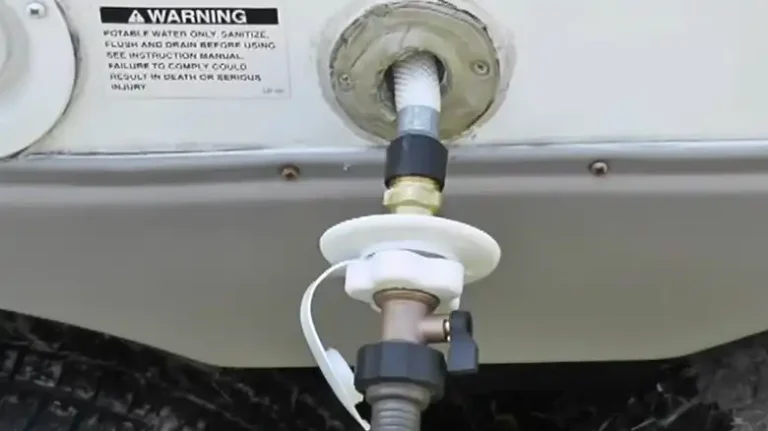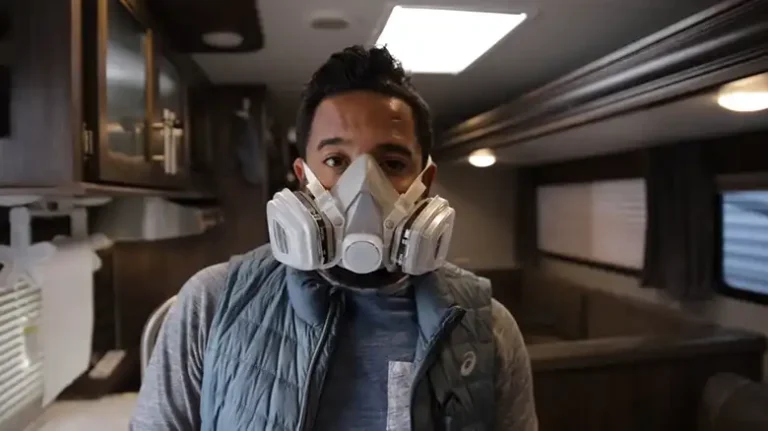Thou Shalt Not Poop in the Camper | A Comprehensive Introduction
Campgrounds and RV parks are filled with a funny reminder: “Thou Shalt Not Poop in the Camper.” While lighthearted, this sign holds a crucial truth. RV toilets, whether cassette-style with removable tanks or holding tank models, have limited capacity. This means proper waste management is essential to avoid unpleasant surprises.
“Thou Shalt Not Poop in the Camper,” likely born from frustrated (or maybe amused) campers, reminds everyone to plan for responsible waste disposal. After all, it’s key to a happy and odor-free camping trip for you and your fellow campers.
So take a few minutes and keep reading till the end to get to know more about this anecdote.

Origin and Significance of “Thou Shalt Not Poop in the Camper”
While the exact origin of this phrase remains uncertain, it has become a beloved part of the RV community’s lexicon. No single inventor can be credited for this gem; instead, it likely emerged organically among campers as a humorous take on religious commandments, highlighting the importance of proper waste management.
The significance of “Thou Shalt Not Poop in the Camper” lies in its ability to lightheartedly remind us of the limitations of camper toilets. It’s a shared knowledge among RVers, emphasizing the importance of planning for waste disposal to avoid unpleasantries. This phrase has also fostered a sense of community, with campers bonding over the shared experiences and challenges of RV living.
Thou Shalt Not Poop in the Camper: Why so?
While the phrase itself is amusing, the reasons behind it are quite serious. Pooping in your camper’s toilet can lead to a variety of issues, ranging from waste management problems to odor control challenges and even environmental concerns.
Firstly, camper toilets have limited holding tank capacity, and the unpleasant task of emptying these tanks can quickly become a nightmare if overused. Clogs and leaks are also potential hazards, making proper waste disposal crucial.
Secondly, odor control is a significant challenge in the confined spaces of a camper. Venting limitations can cause lingering smells, potentially ruining the entire camping experience for everyone involved.
Finally, improper disposal of waste can have detrimental effects on the environment. Polluting campsites or dumping waste in unauthorized areas can lead to serious consequences, both for the environment and for fellow campers.
What Are the Alternatives to Pooping in the Camper?
Fortunately, there are several alternatives to pooping in your camper’s toilet, ensuring a more pleasant and responsible camping experience.
One option is to utilize the campsite facilities, which often include well-maintained public restrooms, showers, and laundry areas. These facilities can provide a more comfortable and hygienic option for personal needs.
Alternatively, portable camping toilets can be a game-changer. These come in various types, such as chemical toilets or composting toilets, and can be a convenient solution for those who prefer a more private setup. However, it’s essential to consider the specific needs and limitations of each type when choosing and using a portable toilet.
Another critical aspect is planning and prevention. Dietary adjustments before camping trips can help minimize the need for frequent bathroom breaks, while utilizing rest stops on travel days can alleviate the pressure on your camper’s toilet.
What to Do if You Need to Poop in the Camper?
Let’s face it, sometimes nature calls, and there’s no avoiding the inevitable. In such emergency situations, there are strategies to minimize the impact on your camper’s toilet and the overall camping experience.
First and foremost, using biodegradable toilet paper and adding deodorizers or treatments to the holding tank can help mitigate odors and potential clogs.
Additionally, it’s crucial to locate a dump station immediately after an emergency poop. Numerous apps and resources are available to help you find the nearest dump station, ensuring proper waste disposal etiquette and procedures are followed.
End Note
In the world of RVing, “Thou Shalt Not Poop in the Camper” is more than just a humorous catchphrase; it’s a testament to the importance of responsible waste management. By adhering to this lighthearted rule (or at least making a conscious effort), campers can ensure a comfortable and environmentally-friendly camping experience for all.
Remember, the joys of RV life come with their own set of realities, and the occasional need to break the “Thou Shalt Not Poop in the Camper” rule (with proper follow-up, of course!) is one of them. Embrace the humor, plan accordingly, and enjoy the great outdoors without any unwanted surprises!
Related FAQs
What if I accidentally poop in the camper? Is there a ritual for forgiveness?
While accidental poops do happen, fear not! There’s no need for a ritual of forgiveness, but you should act swiftly. Treat the holding tank with deodorizers and locate the nearest dump station as soon as possible. And remember, accidents happen – just don’t make a habit of it!
Can I use my camper’s toilet for solid waste if I’m staying at a campground with public restrooms?
While you certainly can use your camper’s toilet for solid waste, it’s generally recommended to utilize the campground’s public restrooms whenever possible. This helps prevent overloading your holding tank and minimizes the need for frequent dumping. However, if the public restrooms are inconvenient or unavailable, your camper’s toilet can be used responsibly.
What’s the best way to explain the “Thou Shalt Not Poop in the Camper” rule to kids?
Explaining this rule to kids can be a delicate balance of humor and practicality. You could tell them that the camper’s toilet is like a tiny apartment toilet, and it gets overwhelmed easily. Encourage them to use campground restrooms or a portable toilet whenever possible. And, of course, don’t forget to share the hilarious origin story of the phrase itself – kids love a good laugh!







